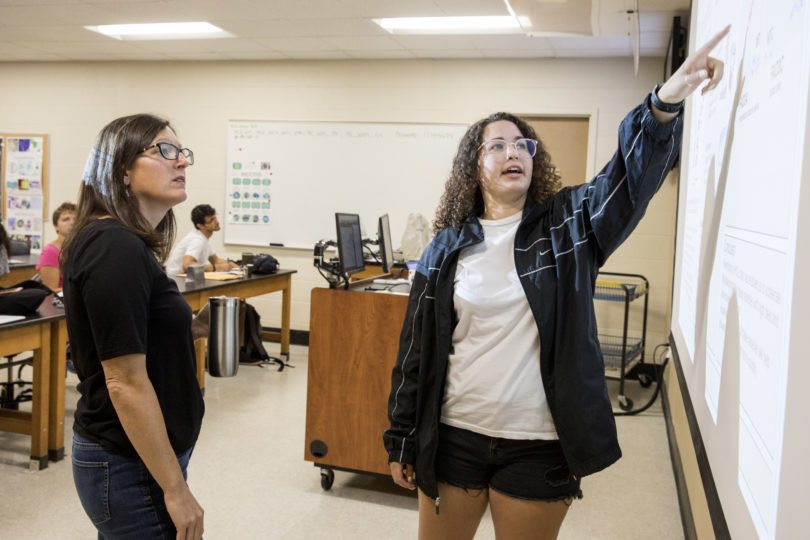Asparagus, corn and tomatoes—these plants were on students’ plates this summer but not in the way you might think. They helped them consider a career in plant science.
“A lot of students think of biology, and they think about medicine or veterinary school,” said Marin Brewer, associate professor of plant pathology in the College of Agricultural and Environmental Sciences. “They don’t realize plant science is a viable option.”
The university’s new plant science-based undergraduate research training project may change that. This summer, 10 students—several from minority-serving institutions and as far away as New Mexico—got a crash course in what it’s like to be a plant scientist.
Funded by the U.S. Department of Agriculture’s National Institute of Food and Agriculture, the three-year Research and Extension Experiences for Undergraduates program joins five other National Science Foundation-funded Research Experiences for Undergraduates programs on campus.
Brewer, who served as coordinator, and Chung-Jui Tsai, lead principal investigator and Georgia Research Alliance Eminent Scholar, drew on the expertise of UGA’s Plant Center to pair the participants with scientists.
Raven Harvey studied the sex chromosomes of asparagus with Jim Leebens-Mack, professor of plant biology in the Franklin College of Arts and Sciences. It’s the first research experience for the senior from Savannah State University.
“Originally I wanted to do veterinary medicine,” she said, “but now I’m actually thinking about going into the research portion of veterinary medicine—maybe in sex chromosomes.”
The program introduces students to a variety of plant research, from laboratory to field, and exposes them to different career options, including extension and industry, said Tsai, who holds a joint appointment in the Franklin College and the Warnell School of Forestry & Natural Resources.
Makayla Mitchell, a junior from Fort Valley State University, explored maize with Shavannor Smith, associate professor of plant pathology in CAES. It was her first time in a lab, and Mitchell enjoyed learning how the Smith team is crossing maize and its wild ancestor to create resistance to a fungal pathogen.
“I didn’t know we could do that,” she said. “This gave me an insight into the molecular aspects of plants. It gave me a better idea of what I want to conduct my research on during grad school.”
During the nine-week experience, the students worked in laboratories, conducted field work, participated in a service-learning project and attended seminars on research ethics, science communication and career counseling. They attended a breeding field course in Tifton and visited a local organic farm.
But Chanais Martinez may have gotten the most mileage out of the program—literally.
The senior from Bowie State University in Maryland worked with Esther van der Knaap, professor of horticulture in CAES, on tomato structure. Martinez planted tomatoes in north Georgia one week, and then traveled to Florida the next week to harvest tomatoes—with a side trip to the University of Florida to extract seeds.
“It was a lot of hands-on experiences that I’ve never had before,” she said. “It definitely has me thinking about grad school.”








